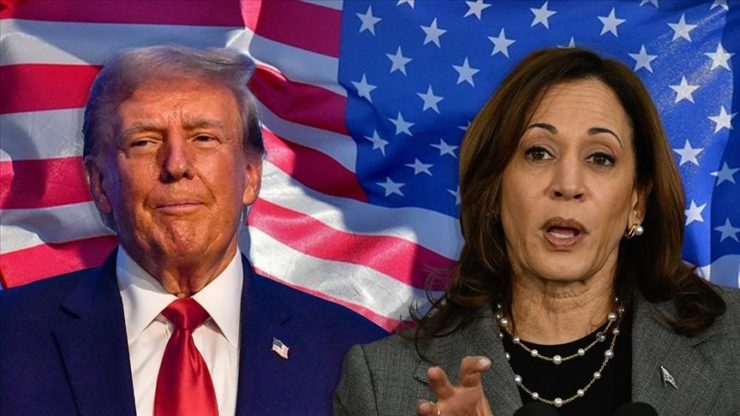
The ongoing race to capture The White House in the US is significant for many reasons for many different actors. Many in the US are interested in it because of the fundamental shifts in the domestic arena that they expect to see happening in case of the Republican candidate winning the election.
Harris’ victory, on the other hand, signals continuity from the Biden era. For the rest of the world, what matters more than the US domestic arena is how the two candidates position themselves vis-à-vis key issues of US foreign policy and whether or not there will be a massive ‘shake up’. Will Trump be more conservative in his outlook to follow a more inward policy in line with the ‘Make America Great Again’ agenda? Will Harris be more aggressive in expanding the outreach of US foreign policy in line with Biden’s ‘America is back’ agenda? In other words, will Harris continue to deploy hard power worldwide as an instrument of foreign policy?
Shake-Up and Continuity
It appears that the election of Trump or Harris as a president will have little qualitative effect on US foreign policy insofar as both seem to carry their specific foreign policy baggage that can cause equal destruction. If Trump has promised to end the Russia-Ukraine conflict, he also stands to adopt a more aggressive approach towards Iran and China. If Harris indicated a ‘stricter’ approach towards Israel to end the war, she has already vowed to continue to supply weapons to Ukraine to fight Russia. In other words, we might some shift in the core focus of their foreign policies, the essence, however, seems to be continuity if we fix our gaze on Washington’s involvement in i.e., support for or opposition to, geopolitical conflicts. It appears more likely that both Harris and Trump have their own favourite ‘friends’ and ‘enemies’ and they would engage with them in their own ways.
However, because they have their specific favourites, we can expect some shake-ups. If Joe Biden was able to mobilize the entire NATO against Russia, Trump’s victory could be an equally major shake-up for NATO’s future. If Joe Biden was able to bring Japan and South Korea together via security pacts, it seems to conflict with Trump’s foreign policy outlook that offers limited space for militarization.
Multilateral Connectivity versus Bilateralism
Trump’s key election slogan, i.e., ‘Make America Great Again’, has a specific meaning. It prefers bilateral engagement to multilateral setups mainly because, in his mind, multilateralism incurs additional – and undue – financial and institutional costs on the US. Indeed, this is his major criticism of NATO as well. But with this being the position, Trump poses a big threat to programmes like the Indo-Pacific Economic Framework for Prosperity (IPEF), which the Biden administration launched, with an eye on China, in May 2022 to bring together countries Australia, Brunei Darussalam, Fiji India, Indonesia, Japan, the Republic of Korea, Malaysia, New Zealand, Philippines, Singapore, Thailand, and Vietnam.
Because Trump is not a big supporter of such multilateral arrangements, there are good chance that this project will become dormant if Trump wins. Still, we can expect increasing US engagement in the region under Trump as well. But its form will be different. Harris’ multilateralism will be matched only by Trump’s preference for bilateral lines with the same countries for similar reasons, i.e., to counter China. In other words, when it comes to China, Trump and Harris appear to be the same.
There are good reasons to argue that, regardless of who wins elections in the US, Washington will still find many in the region eager to expand security ties with the US. Many in that part of the world, e.g., Japan, South Korea, and Australia, have recently increased their defence spending. For Washington, this is only a welcome development – not only because it requires less US active military deployment in the region, but also because militarization reinforces patterns of these countries’ dependence on the US as the main supplier of weapon systems. Because these countries are arming themselves vis-à-vis China, they are less likely to buy weapons from China. Therefore, regardless of whether Trump’s bilateralism prevails or whether Harris’ multilateral approach wins, Washington will continue to militarize the Indo-Pacific in its pursuit of dominance in the region. For instance, Trump, instead of taking steps to scrap the AUKUS treaty, would push Australia to spend more.
Conflict or Peace?
In both cases, however, the chances of US foreign policy producing peace are fewer than chances of (military) conflict and diplomatic tensions. Peace will be more particularly elusive in the Middle East, where both Harris and Trump stand to support Israel. This is even though Trump has claimed that he can bring Israel’s war to a quick end. Trump has also claimed to bring the Russia-Ukraine conflict to an end, but the “deep state” in the US is making sure that it does not happen. In fact, one of the key reasons for Ukraine’s attacks on Russia is to create a geopolitical situation that would make it difficult even for Trump to roll the situation back to ‘normal’. The US “deep state” and its allies in Europe will most likely see it as too costly a bargain to yield any fruitful results for them in the short and the long run. In the case of Harris’ elections, no one faces any crisis of this sort in and across Europe.
Salman Rafi Sheikh, research analyst of International Relations and Pakistan’s foreign and domestic affairs, exclusively for the online magazine “New Eastern Outlook”
